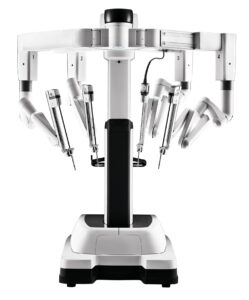At the helm
Anderson leads Iowa Beef Industry Council, works to connect with producers, consumers
-
-Submitted photo
Mike Anderson is the new executive director of the Iowa Beef Industry Council. He assumed the new position in January 2023.

-Submitted photo
Mike Anderson is the new executive director of the Iowa Beef Industry Council. He assumed the new position in January 2023.
The New Year kicked off with a new executive director at the helm of the Iowa Beef Industry Council.
The IBIC board of directors chose Mike Anderson of Ames to lead the Iowa Beef Checkoff. As a farm kid who played an active role on his family’s Garner operation, Anderson spent the previous 17 years with Iowa State University Extension and Outreach where he served as the state 4-H livestock specialist.
“I was responsible for all statewide events and curriculum for youth livestock programs, served as the 4-H livestock superintendent for the Iowa State Fair, managed other state 4-H program staff and managed overall leadership for the 4-H ag and natural resources program area,” Anderson said.
The Iowa State graduate has a bachelor’s degree and master’s degree in animal science. After graduation, he worked two years as a manager of a beef carcass ultrasound processing laboratory in Ames. Then in 2004, he took a position with Purdue University Extension in Indiana as a 4-H educator for two years.
“I’ve been a farm kid my entire life. As the youngest of four siblings, most of our time was spent out on the farm where we raised row crops, cattle and hogs. I always had a passion for the cattle business, participating in 4-H and FFA throughout my youth while showing cattle all over the country,” Anderson said. “Today, my older brother does the farming but I still am involved as much as I can be in our family’s cattle operation where we market purebred and percentage Limousin and Lim-Flex cattle.”
As the executive director of the Iowa Beef Industry Council, Anderson plans to travel extensively in his first year and have conversations with auction markets and meat processors to gain insight into their wants and needs as they are the entities that typically collect beef checkoff dollars from producers and oftentimes receive the brunt of the complaints about what the checkoff really does.
“I think there’s great opportunity in educating our youth about the beef industry and I feel my background in this area will hopefully be a great asset with my partnerships with universities across the country and the beef industry in general,” Anderson said. “The Iowa Beef Industry Council is currently at a strong and successful position. We also are looking at new and unique ways to recruit members to our board of directors from a variety of experiences in the industry. That may be cow/calf producers, feedlot producers, those in the packing industry, retail meat markets, or other fields.”
The IBIC represents more than 25,000 operations in Iowa and contributes more than $6 billion in economic activity. But Anderson said people oftentimes say they’ve heard of the council and are familiar with the beef checkoff logo but don’t really know what the organization does.
“It oftentimes is a struggle with any entity to get your message out there. Our two main goals are to educate Iowa’s beef consumers on the positive advantage beef has and to educate our cattle producers on where the money is being spent,” Anderson said. “In Iowa, there are two aspects to the beef checkoff — one is the national checkoff where $1 per head is assessed on all Iowa cattle sold and the other is the Iowa checkoff where an additional $.50 per head is assessed on all Iowa cattle originating from Iowa.”
From the national checkoff, $.50 per head is kept in Iowa along with the full $.50 per head Iowa checkoff. Not all states have a state checkoff like Iowa does — but several do, Anderson noted.
“This allows the Iowa Beef Industry Council to focus on needs here in Iowa, especially in the field of research. We have funded several thousands of dollars of research projects aimed at helping cattle producers increase their profitability by funding projects in the fields of nutrition, reproduction, feed efficiency, health and disease treatment and prevention, and general management practices,” Anderson said.
Many producers and consumers also are not aware of the work the checkoff funds do across the globe, Anderson added.
“Our international markets are huge, and after a trip I was able to attend in Japan and South Korea, it was truly eye-opening of the value our U.S. beef product has overseas. My staff continues to do a tremendous job aiming marketing and partnership efforts to consumers and retail partners to promote beef,” Anderson said. “We have and continue to reach out to schools, grocery retail stores, athletic departments at colleges, and other key partners to establish working relationships and marketing campaigns to help keep beef as the protein of choice with consumers.”
While he doesn’t have a lot of free time, Anderson enjoys being outside and on his family’s farm whenever he can. He also loves to spend time with his family, which includes Delaney, 15, Avery, 12, and Colin, 10. Anderson has played sports since he was young and still does to this day. His kids also are heavily involved in their own activities.
“I continue to help with my family’s cattle operation, so it’s a fun time of year discussing the upcoming breeding decisions with my older brother for the cowherd,” Anderson said.
Even though he maintains ties to his family farm and continues to promote agriculture, Anderson recognizes that not all consumers are as versed in farming as he and other ag leaders.
“The average consumer is now three generations removed from agriculture. My experience in my previous job and with my own kids has done nothing more than prove we have a lot of work to do in order to keep agriculture relevant and alive across this nation,” Anderson said. “If there was any silver lining at all with COVID, one positive that came from that was consumers either cooking more of their own food at home or just simply wondering how/where their food comes from.
“As an ag industry, we are positioned very well to tell our story. We’ve spent too much time defending our industry and I feel we’ve really turned a corner and gone on the offensive,” he said. “Efforts continue to educate consumers on beef cattle production, how we’ve been sustainable as an industry before that term became the latest buzzword, and the care cattle producers take to create a safe, wholesome and nutritious product.”





